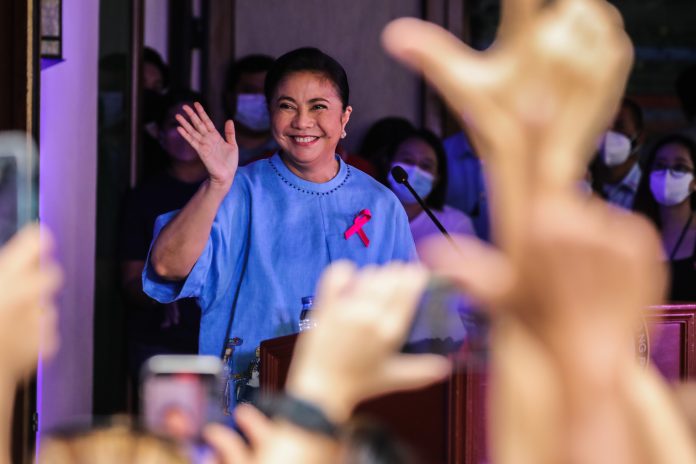At least two faith-based peace advocacy groups said they found “resonance” in Vice President Leni Robredo’s views on insurgency, but said “good governance” is “still not enough” to address the issue.
The vice president, who is running for the country’s top post in next year’s national elections, has earlier said the government needs to look at the socioeconomic roots of the country’s insurgency issue.
In a statement on November 10, peace groups Kapayapaan and Pilgrims for Peace said it is “a positive sign that she would not endorse a purely militarist solution if she is elected president.”
The groups, however, said the impoverishment of the Filipino masses “is just a symptom of the problem.”
“The underlying causes of this situation are deeply entrenched structures that foster social injustice,” said the groups in a statement signed by Father Benjamin Alforque of Kapayapaan and Reverend Ritchie Masegman of Pilgrims for Peace.
“Even the problems of congestion in the cities, urban squalor and decay, inadequate social services strained by mass unemployment, hunger, ill health, and the high numbers of out-of-school youth can all be traced to landlessness and severe poverty in rural areas,” it added.
They said that the “suffocating status quo” are deeply entrenched in national and local bureaucracies that “more and more brazenly and with impunity submit to and collude with foreign interests in plundering the nation’s wealth and resources.”
“These are the entrenched structures that a militarist solution can never remove,” said the peace groups, adding that “a myopic approach has served to only aggravate the current socioeconomic problems, as seen in the militarization of the countryside, the displacement of rural populations, and the increasing number of human rights violations.”
“Such is the reason why formal peace talks at the national level remains the only sensible path,” they added.
“The pursuit of economic growth and development in a way that is sustainable, inclusive, and considers the welfare and dignity of every Filipino is an option that becomes open at the negotiating table and not on the battlefield,” said the peace groups.
They expressed optimism that Robredo “would remain committed to the objective of attaining a just and lasting peace.”
“We will continue to engage with her views on the peace process and are open to a dialogue with her if she is amenable to such a possibility,” they added.
This week, Robredo announced that she would abolish the controversial anti-insurgency task force of the government and instead endeavor a “conducive environment” for peace talks with insurgents if she would be elected president.
She said she would veer away from purely “militarist approaches to ending internal armed conflict.”









